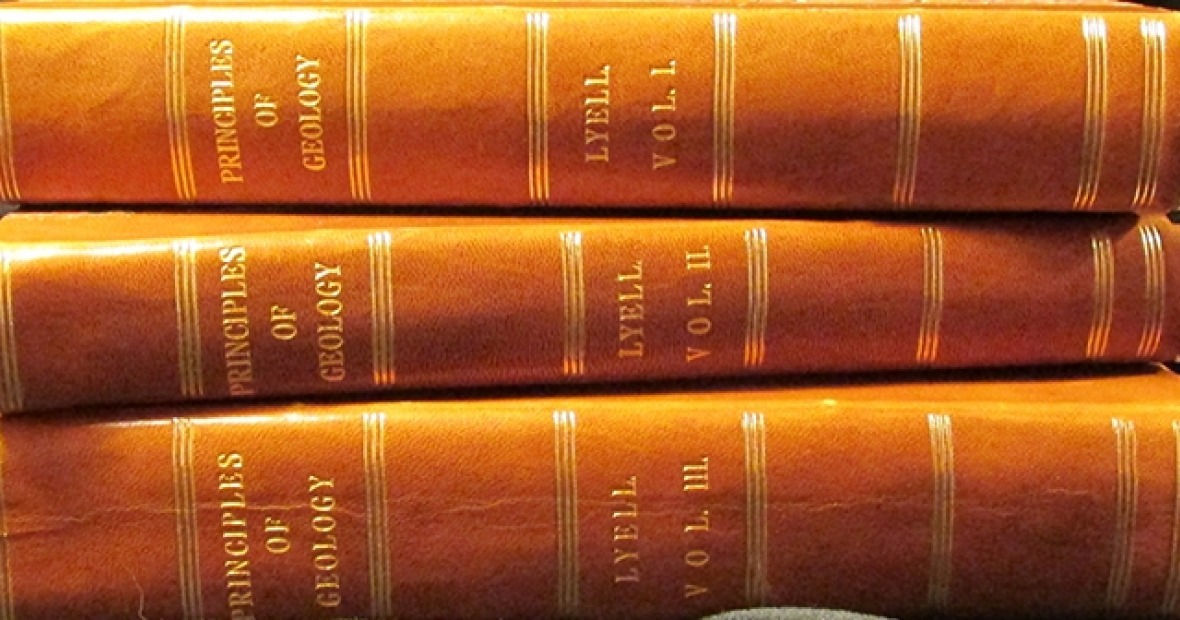Principles of Geology
Principles of Geology. Being An Attempt to Explain the Former Changes of the Earth’s Surface, by Reference to Causes Now in Operation, by Charles Lyell, has been called the most important scientific book ever written. Lyell revolutionized the study of geology by finding evidence for a number of things we take for granted today. Most notably, Lyell challenged the commonly-held belief in “catastrophism,” that is, that the earth as it appears today was mostly formed through quick, sudden geological “catastrophes,” such as the Biblical flood of Noah’s Ark. Instead, Principles of Geology suggested that geological processes mostly work through innumerable slow changes over millennia.
This theory had impacts that continue to resonate in the scientific community today. Most notably, this work was read by Charles Darwin while he was aboard the H.M.S. Beagle, and the influence of Lyell’s theory of slow change over millennia is not hard to spot within Darwin’s theory of evolution outlined in The Origin of Species. Indeed, while Lyell himself was skeptical that his ideas could be applied to biological processes, there can be little doubt that this book contributed invaluable insight into our understanding of evolution.
Another revolutionary impact of the book involves the concept of deep time, or the idea that the earth has existed for many millions of years. Although Lyell did not create the concept of deep time, he developed the theory as part of his work, building evidence against the Christian claim that the earth is only 6,000 years old. Lyell’s belief in deep time was not universally accepted at the time, but it has since become acknowledged as the truth.
This copy of Principles of Geology is a first edition, having been published between 1830 and 1833 by John Murray in London, the same publisher who would later print notable works such as Darwin’s On the Origin of Species and The Descent of Man.
We encourage anyone with an interest to drop by Special Collections and examine this book—or any other books!—in person. Special Collections and Archives is open to the public 1:30-5:00pm Monday through Friday and mornings by appointment.

